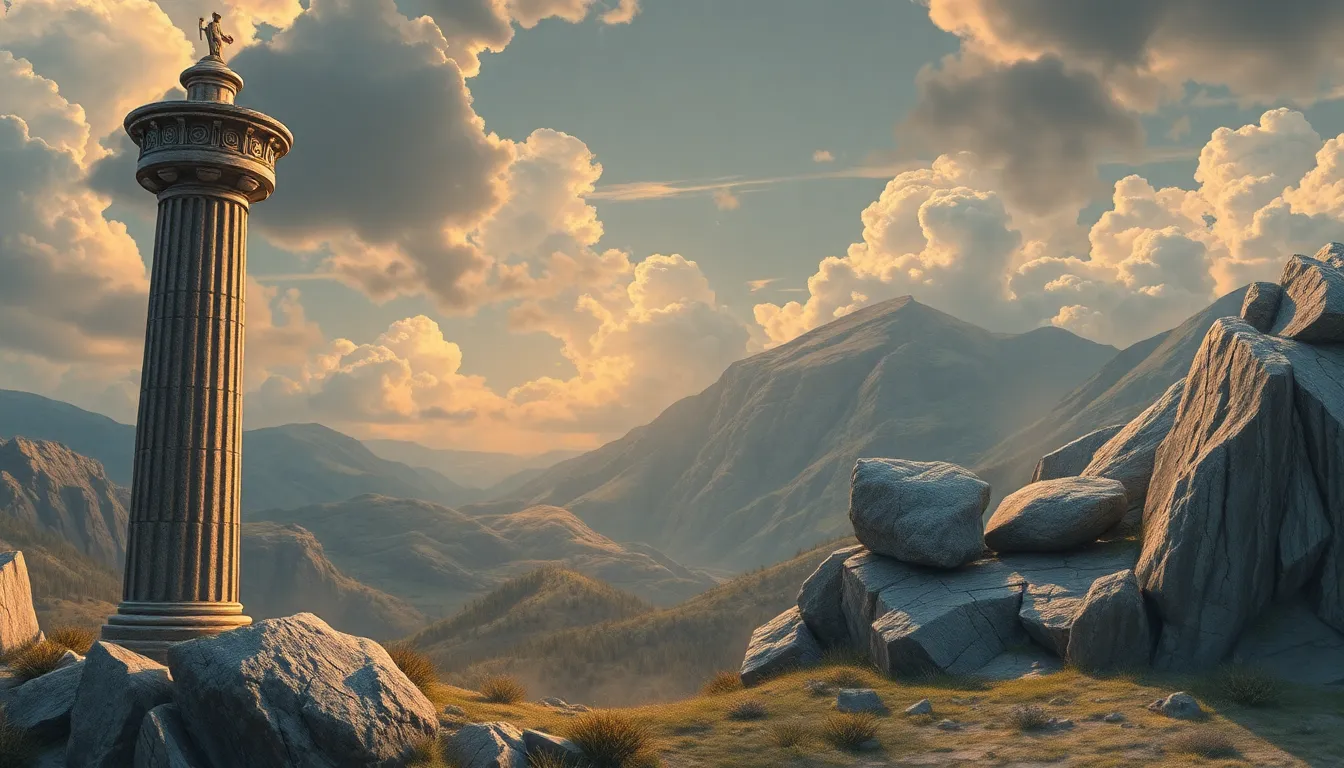The Role of Fate in Pandora’s Story: A Mythological Analysis
I. Introduction
Pandora’s myth stands as a cornerstone of Greek mythology, capturing the complexities of human existence, the nature of suffering, and the interplay of fate and choice. As the first woman created by the gods, Pandora embodies both beauty and tragedy, and her story serves as a cautionary tale about the consequences of curiosity and the inevitability of fate.
In the context of Greek mythology, fate is often viewed as a predetermined path that individuals must follow, shaped by divine forces beyond human control. This article aims to explore how fate influences Pandora’s narrative, examining its implications for her character and the broader themes within Greek mythology.
II. Understanding Pandora: The First Woman in Greek Mythology
Pandora’s creation is a significant event in the mythological canon. According to the myths, she was fashioned by Hephaestus, the god of craftsmanship, and bestowed with gifts from all the gods, making her both enchanting and dangerous. Each gift she received symbolized various aspects of life, including beauty, persuasion, and cunning.
The gods played a crucial role in her creation, each contributing to her unique attributes. For instance:
- Aphrodite gave her beauty.
- Hermes endowed her with wit and deceit.
- Athena provided her with skills in crafts.
These divine gifts illustrate Pandora’s dual nature as both a source of wonder and a harbinger of misfortune. As a character, she embodies the concept of fate; her existence is intertwined with the destinies of others, ultimately leading to the unfolding of humanity’s woes.
III. The Concept of Fate in Greek Mythology
The Moirai, or Fates, are central figures in Greek mythology, representing the inescapable forces that dictate the fates of gods and mortals alike. They are typically depicted as three sisters: Clotho, who spins the thread of life; Lachesis, who measures it; and Atropos, who cuts it. Their role is to ensure that every being’s life follows a predetermined course.
In Greek myths, fate is often seen as a counterbalance to free will. While characters may make choices, their ultimate destinies are frequently dictated by the Fates. This duality raises questions about the nature of agency within the mythological framework. Some notable examples of fate influencing other figures include:
- Oedipus, whose fate was foretold and ultimately fulfilled despite his attempts to avoid it.
- Achilles, whose destiny in the Trojan War was predetermined, impacting his choices and actions.
- These examples illustrate the powerful grip of fate over even the most heroic of characters.
IV. Pandora’s Box: A Vessel of Fate
The infamous box, often referred to as Pandora’s jar, is a pivotal element in her story. According to the myth, Pandora was given a sealed container with strict instructions not to open it. However, driven by curiosity, she inevitably succumbed and unleashed a torrent of evils into the world.
This act of opening the box symbolizes the complex interplay between fate and choice. Pandora’s decision to disobey the divine command highlights human curiosity and the temptation of the unknown. Moreover, the implications of what she released into the world are profound:
- Illness
- Suffering
- Despair
Despite this, hope remained trapped within the jar, suggesting that even in the face of adversity, there is a glimmer of light and possibility. This duality serves as a reminder that fate may impose challenges, yet the human spirit can still strive for hope and resilience.
V. The Consequences of Pandora’s Actions: Fate Unleashed
The consequences of Pandora’s actions were immediate and devastating. The release of evils into the world marked a significant turning point in humanity’s relationship with suffering and misfortune. According to the myth, these unleashed forces led to:
- Widespread pain and hardship.
- The introduction of mortality and the loss of paradise.
Pandora’s actions fulfill a predetermined fate, aligning with the notion that the gods had orchestrated these events to teach humanity a lesson. The story serves as a parable about the dangers of curiosity and the inevitability of suffering, suggesting that fate often comes hand-in-hand with dire consequences.
VI. Fate vs. Free Will: The Dichotomy in Pandora’s Tale
The tension between fate and free will is a prominent theme in Pandora’s narrative. While her creation was orchestrated by the gods, her decision to open the box signifies the exercise of free will. This dichotomy raises intriguing questions about the nature of divine will versus human agency. The philosophical interpretations of this tension can lead to various conclusions:
- Fate may guide individuals, but choices can still influence the trajectory of their lives.
- Human actions can align with or defy predetermined destinies.
Ultimately, Pandora’s tale reflects the complexity of this relationship, illustrating that while fate may chart the course, individual choices play a crucial role in navigating it.
VII. The Legacy of Pandora: Fate’s Enduring Influence
Pandora’s story continues to resonate in modern culture, influencing contemporary interpretations of fate and human experience. In literature, film, and art, her myth serves as a powerful symbol of the struggle between curiosity and consequence. In various adaptations, the themes of fate and free will are explored through:
- Retellings that emphasize the moral lessons of her actions.
- Modern narratives that reinterpret the concept of hope in the face of adversity.
These discussions highlight the enduring relevance of Pandora’s myth as a framework for understanding the complexities of fate in human life.
VIII. Conclusion
In conclusion, Pandora’s story is a rich tapestry woven with themes of fate, choice, and the human condition. Through the exploration of her myth, we gain insights into the nature of destiny and the lessons that arise from our actions. Understanding fate in mythology allows us to reflect on our own experiences and the broader cultural implications of our choices.
The mystery of fate remains an enduring aspect of the human experience, inviting us to ponder our paths and the forces that shape them.




